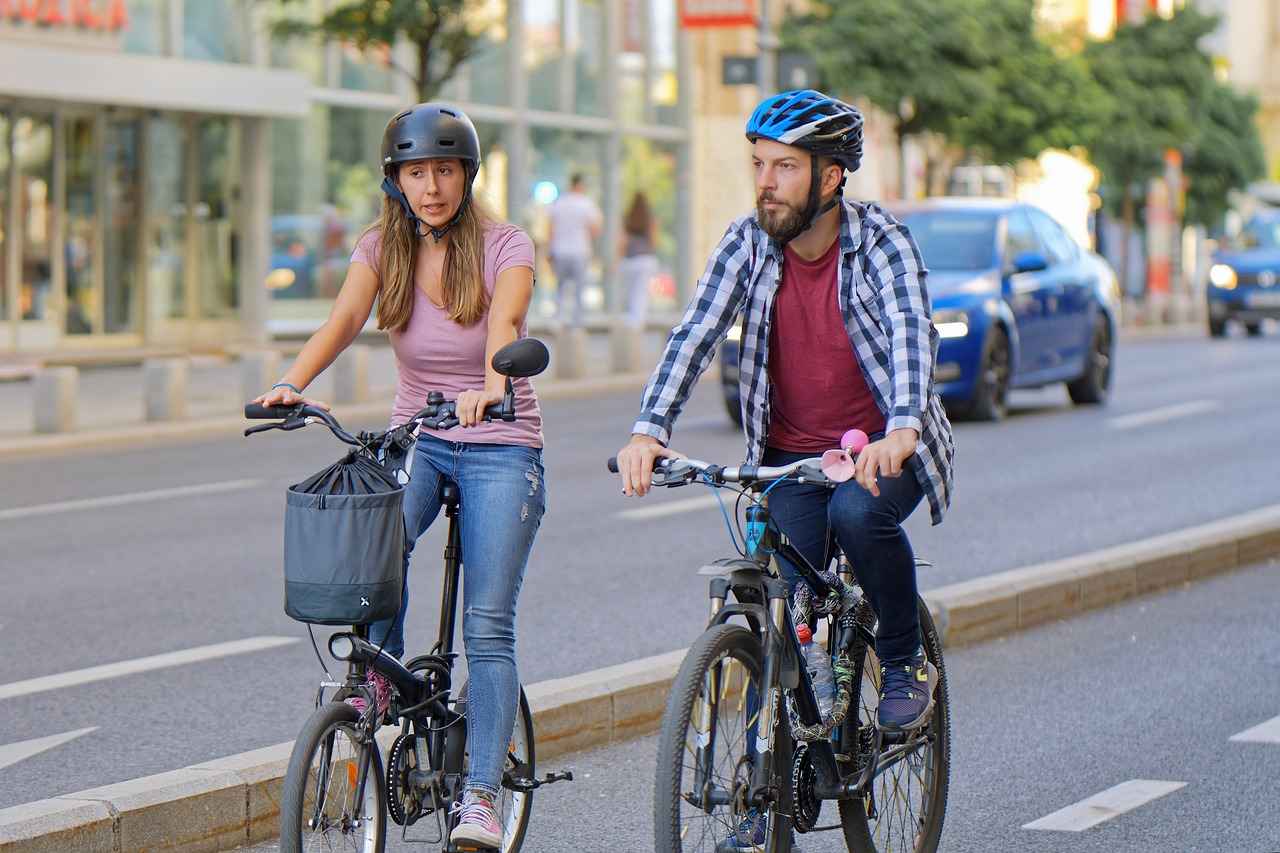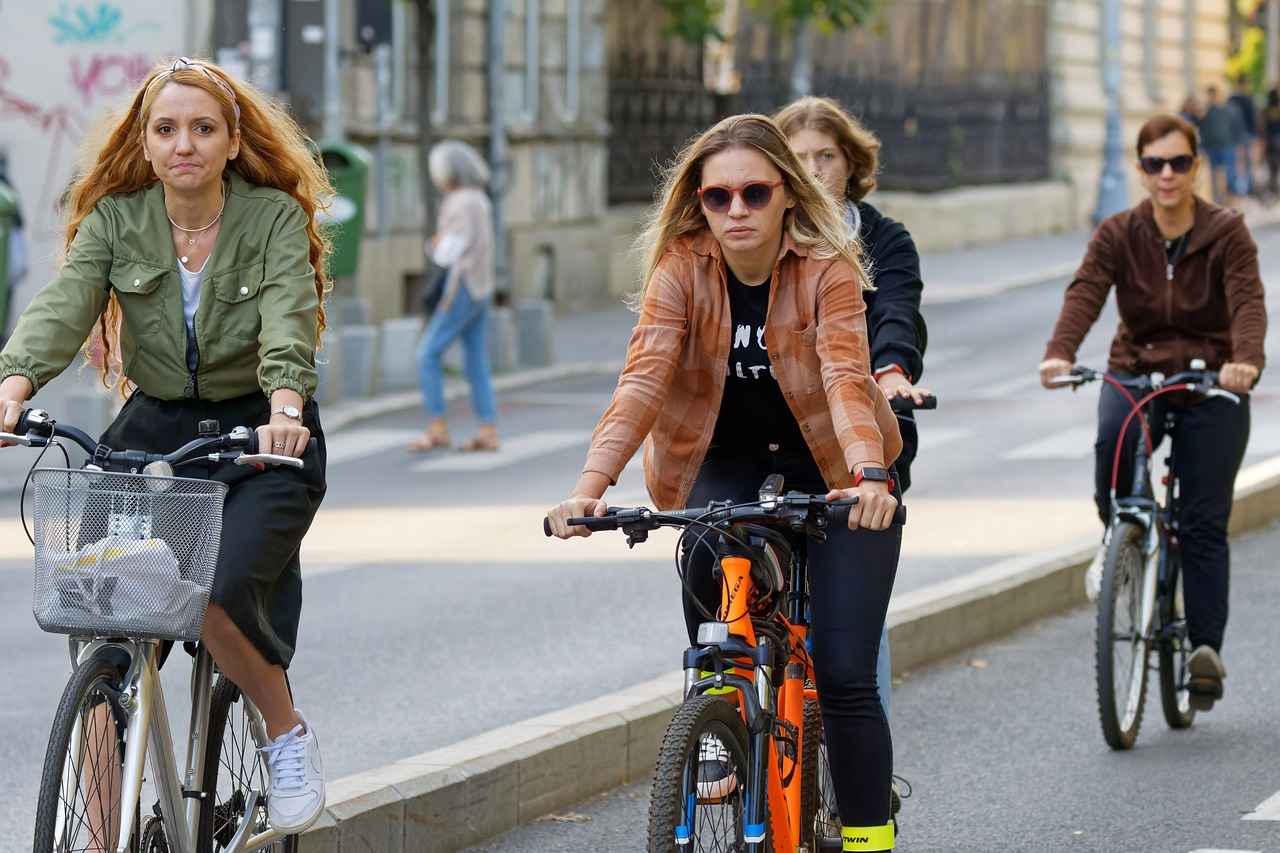This article delves into the remarkable advancements and innovations anticipated in the electric bike industry by 2025. It will cover crucial aspects such as technology, design, regulations, and market trends that are set to shape the future of e-bikes.
1. The Rise of Electric Bikes: A Brief Overview
Electric bikes have witnessed a surge in popularity over recent years, driven by urbanization and a growing awareness of environmental issues. This section discusses their evolution and the factors fueling global demand.
2. Key Technological Innovations in E-Bikes
Technological advancements are transforming the landscape of e-bikes. Here, we explore innovations that enhance performance, range, and overall user experience.
- 2.1 Battery Technology Advancements
- 2.1.1 Solid-State Batteries: These batteries offer increased energy density and safety compared to traditional lithium-ion batteries.
- 2.1.2 Fast Charging Solutions: Innovations in charging infrastructure will significantly enhance user convenience.
- 2.2 Smart Features and Connectivity
The future of electric bikes heavily relies on battery improvements. New battery chemistries promise longer life and faster charging times.
Integration of smart technology is becoming standard in e-bikes, with features like GPS navigation and fitness tracking enhancing the riding experience.
3. Sustainable Manufacturing Practices
As sustainability becomes a priority, the e-bike industry is adopting eco-friendly manufacturing processes. This section highlights the shift towards recyclable materials and lifecycle assessments.
4. Regulatory Changes Impacting the E-Bike Market
With the rise in e-bike popularity, regulations are evolving. This section reviews current and upcoming regulations that could influence manufacturing and usage.
5. Market Trends: What to Expect in 2025
The e-bike market is continuously evolving. This section analyzes market trends, consumer preferences, and anticipated changes shaping the industry landscape by 2025.
- 5.1 Growth of E-Bike Sharing Programs: These programs are expanding in urban areas, impacting transportation significantly.
- 5.2 The Role of E-Bikes in Urban Mobility: E-bikes are crucial for sustainable urban mobility, fitting into public transport and urban planning initiatives.
6. Conclusion: The Future Looks Bright for E-Bikes
In conclusion, the future of electric bikes appears promising, with technological advancements, sustainable practices, and supportive regulations paving the way for growth and innovation in the coming years.

1. The Rise of Electric Bikes: A Brief Overview
Electric bikes have seen a remarkable surge in popularity over the past decade, transforming from niche products to mainstream transportation solutions. This section delves into the evolution of electric bicycles, their market growth, and the key factors driving their increasing demand worldwide.
The journey of electric bikes began in the late 19th century, but it wasn’t until the early 2000s that they gained significant traction. The advent of more efficient batteries and lightweight materials has made e-bikes more accessible and appealing to a broader audience. Today, they are not only seen as a mode of transportation but also as a means of promoting a healthier lifestyle and reducing carbon emissions.
According to recent market research, the global electric bike market is projected to reach $38 billion by 2025, growing at a compound annual growth rate (CAGR) of over 7%. This growth can be attributed to several factors:
- Environmental Awareness: As concerns about climate change grow, more individuals are seeking sustainable alternatives to traditional vehicles.
- Urbanization: With more people living in cities, electric bikes offer a convenient and efficient way to navigate congested urban areas.
- Technological Advancements: Improvements in battery technology and smart features have enhanced the overall user experience, making e-bikes more attractive.
Additionally, government initiatives and incentives aimed at promoting electric mobility are further fueling the demand for e-bikes. Many countries are implementing policies to encourage the use of electric bicycles as part of their transportation strategies.
In conclusion, the rise of electric bikes represents a significant shift in how we think about transportation. With ongoing advancements and increasing consumer interest, the future of e-bikes looks incredibly promising.

2. Key Technological Innovations in E-Bikes
Key Technological Innovations in E-Bikes
The electric bike industry is experiencing a significant transformation, driven by innovations in battery technology and smart features. These advancements not only enhance performance and range but also improve user experience, setting the stage for future developments that will shape the e-bike landscape.
As we delve into the core innovations, we will explore how these technologies are revolutionizing the way we ride and interact with electric bikes.
- Battery Technology Advancements
- Solid-State Batteries: These batteries are at the forefront of e-bike technology. They promise increased energy density, longer life spans, and enhanced safety compared to traditional lithium-ion batteries. With solid-state batteries, riders can expect greater range and faster charging times, making them a game-changer in the industry.
- Fast Charging Solutions: Innovations in fast charging technology are crucial for enhancing user convenience. New charging infrastructure is being developed that allows riders to recharge their e-bikes quickly, reducing downtime and making e-bikes more practical for daily use.
- Smart Features and Connectivity
- GPS Navigation: Many e-bikes now come equipped with built-in GPS systems, allowing riders to navigate easily and explore new routes without the fear of getting lost.
- Fitness Tracking: Integrated fitness tracking features help riders monitor their performance, track their workouts, and achieve their fitness goals while enjoying the ride.
- Smartphone Connectivity: E-bikes are increasingly compatible with smartphones, enabling users to access apps for route planning, performance tracking, and even theft protection.
In summary, the integration of advanced battery technologies and smart features is not just about enhancing the riding experience; it is about making e-bikes a viable alternative to traditional transportation methods. As these innovations continue to evolve, they will undoubtedly play a crucial role in the future of urban mobility and sustainability.
2.1 Battery Technology Advancements
The future of electric bikes is intricately linked to advancements in battery technology. As we look towards 2025, the focus on developing innovative battery chemistries and designs is paramount. These innovations promise not only extended battery life but also faster charging times, which are essential for enhancing the overall user experience in electric biking.
One of the most significant advancements in this field is the development of solid-state batteries. Unlike traditional lithium-ion batteries, solid-state batteries utilize a solid electrolyte instead of a liquid one. This shift offers several advantages:
- Higher energy density: Solid-state batteries can store more energy in a smaller space, allowing for lighter and more compact battery designs.
- Improved safety: The absence of flammable liquids reduces the risk of fires and explosions, making these batteries safer for everyday use.
- Longer lifespan: Solid-state technology can withstand more charge cycles, resulting in batteries that last significantly longer.
In addition to solid-state batteries, fast charging solutions are also evolving. The demand for quick recharging capabilities is driving innovations in charging infrastructure:
- Ultra-fast charging stations: These stations can recharge e-bike batteries in a fraction of the time compared to conventional chargers, making it more convenient for users.
- Wireless charging technologies: Emerging wireless systems are being tested, allowing riders to charge their bikes simply by parking over a designated pad, eliminating the need for cables.
Moreover, the integration of smart technology in battery management systems is enhancing the efficiency and longevity of e-bike batteries. These systems monitor battery health and optimize charging cycles, ensuring that riders get the most out of their batteries.
In conclusion, the advancements in battery technology are set to revolutionize the electric bike industry. With innovations such as solid-state batteries and fast charging solutions, the future looks promising for e-bike enthusiasts, paving the way for a more sustainable and user-friendly riding experience.
2.1.1 Solid-State Batteries
Solid-state batteries are rapidly emerging as a transformative technology in the electric bike (e-bike) sector. These advanced batteries offer significant advantages over traditional lithium-ion batteries, which have dominated the market for years. This section delves into the myriad benefits that solid-state batteries bring to the table, emphasizing their potential to revolutionize the e-bike experience.
One of the most notable advantages of solid-state batteries is their increased energy density. This means that e-bikes equipped with these batteries can store more energy in a smaller and lighter package compared to conventional batteries. As a result, riders can expect improved range and performance, allowing for longer rides without the need for frequent recharging. This is particularly appealing for commuters and adventure seekers alike.
In addition to enhanced energy density, solid-state batteries also offer superior safety features. Traditional lithium-ion batteries are prone to overheating and, in some cases, can catch fire if damaged. Solid-state batteries, on the other hand, utilize a solid electrolyte, which significantly reduces the risk of thermal runaway and improves overall safety. This makes them a more reliable choice for e-bike manufacturers and consumers.
Another critical aspect is the longer lifecycle of solid-state batteries. They are designed to withstand more charge-discharge cycles than their lithium-ion counterparts, leading to reduced waste and lower replacement costs over time. This longevity not only benefits consumers but also contributes to a more sustainable e-bike ecosystem.
Furthermore, the potential for faster charging times with solid-state batteries cannot be overlooked. As technology advances, the ability to recharge these batteries quickly will enhance user convenience, making e-bikes even more appealing to a broader audience.
In summary, the integration of solid-state batteries into e-bikes represents a significant leap forward in battery technology. With their increased energy density, enhanced safety, longer lifecycle, and potential for faster charging, solid-state batteries are poised to redefine the e-bike landscape, making them a compelling choice for the future of electric mobility.
2.1.2 Fast Charging Solutions
Fast charging solutions are revolutionizing the way we utilize electric bikes, significantly enhancing user convenience and accessibility. As the demand for e-bikes continues to rise, the importance of efficient charging technology becomes paramount. In this section, we delve into the latest advancements in charging infrastructure and their implications for e-bike usability.
With advancements in battery technology, e-bikes are now capable of charging at unprecedented speeds. Modern fast charging systems can replenish a battery to 80% capacity in less than an hour, drastically reducing downtime for users. This is particularly beneficial for commuters who rely on their e-bikes for daily travel, as it allows for quick top-ups during short stops.
Moreover, the integration of smart charging stations is becoming increasingly common. These stations not only provide fast charging capabilities but also offer features such as real-time monitoring of battery status and user notifications. This level of connectivity ensures that users can plan their rides more effectively, knowing exactly when and where they can recharge.
| Charging Method | Charging Time | Battery Capacity |
|---|---|---|
| Standard Charging | 4-6 hours | 500Wh |
| Fast Charging | 1-2 hours | 500Wh |
| Ultra-Fast Charging | 30-60 minutes | 500Wh |
Additionally, the development of wireless charging technologies is on the horizon, which could further streamline the charging process. This innovation would eliminate the need for physical connections, allowing users to charge their bikes simply by parking them over a charging pad.
As we look towards the future, the impact of these advancements in charging solutions will be profound. Users will experience enhanced freedom and flexibility, making e-bikes an even more attractive mode of transportation. In conclusion, the evolution of fast charging technologies is set to transform e-bike usability, paving the way for a more efficient and user-friendly riding experience.
2.2 Smart Features and Connectivity
Smart technology integration is rapidly becoming a hallmark of modern electric bikes. As we look towards 2025, the incorporation of advanced features is expected to significantly enhance the riding experience for users. This section delves into the key functionalities that are set to redefine how we interact with e-bikes.
- GPS Navigation: One of the standout features of smart e-bikes is integrated GPS navigation. Riders can easily access real-time maps and route planning directly from their bike’s display or through a connected smartphone app. This ensures that cyclists can explore new routes confidently, avoiding traffic and finding the most scenic paths.
- Fitness Tracking: Fitness enthusiasts will appreciate the fitness tracking capabilities of smart e-bikes. These bikes can monitor metrics such as distance traveled, speed, calories burned, and even heart rate. By syncing with fitness apps, users can track their progress over time, making e-bikes a valuable tool for health and wellness.
- Smartphone Connectivity: The ability to connect smartphones to e-bikes opens up a range of possibilities. Riders can receive notifications, control music playback, and even lock their bike remotely. This feature not only adds convenience but also enhances security, allowing users to monitor their bike’s status through their mobile devices.
- Anti-Theft Systems: With the rise in e-bike thefts, smart technology offers robust anti-theft systems. Many e-bikes now come equipped with GPS tracking and alarm systems that alert owners if their bike is tampered with. This integration provides peace of mind for users, knowing that their investment is protected.
- Customizable Settings: Riders can personalize their biking experience by adjusting settings such as pedal assist levels and display preferences through a companion app. This level of customization allows for a tailored riding experience that can adapt to different terrains and riding styles.
In conclusion, the integration of smart features and connectivity in e-bikes is transforming how we ride. As these technologies continue to evolve, they promise to enhance not only the convenience and safety of cycling but also the overall enjoyment of the ride. The future of e-bikes is not just about electric power; it’s about creating a fully connected and interactive cycling experience.

3. Sustainable Manufacturing Practices
Sustainable Manufacturing Practices are becoming increasingly important in the electric bike industry as concerns about environmental impact grow. Companies are recognizing the need to adopt eco-friendly methods and materials to reduce their carbon footprint and promote sustainability.
In recent years, the shift towards green manufacturing processes has gained momentum. This involves not only the use of sustainable materials but also the implementation of energy-efficient production techniques. By focusing on reducing waste and energy consumption, manufacturers are making strides in creating a more sustainable product.
One significant aspect of this movement is the use of recyclable materials. Manufacturers are increasingly incorporating materials that can be recycled at the end of the product’s life cycle. Commonly used materials include:
- Aluminum: Lightweight and easily recyclable, aluminum is a popular choice for e-bike frames.
- Plastic Composites: Many companies are utilizing biodegradable plastics that can decompose naturally.
- Natural Fibers: Materials like hemp and bamboo are being explored for their low environmental impact.
Furthermore, manufacturers are conducting lifecycle assessments to understand the environmental impact of e-bikes from production to disposal. This comprehensive approach helps identify areas for improvement and encourages the adoption of more sustainable practices.
In addition to materials, companies are also focusing on energy-efficient manufacturing processes. This includes using renewable energy sources, such as solar and wind power, to reduce reliance on fossil fuels. By transitioning to these sustainable energy sources, the e-bike industry can significantly lower its carbon emissions.
Overall, the commitment to sustainability in the e-bike industry is not just a trend but a necessary evolution. As consumers become more environmentally conscious, companies that prioritize sustainable manufacturing practices will likely lead the market, paving the way for a greener future.
3.1 Use of Recyclable Materials
The shift towards recyclable materials in e-bike production is gaining significant momentum, reflecting a broader commitment to sustainability within the industry. As environmental concerns rise, manufacturers are increasingly prioritizing eco-friendly practices that not only reduce waste but also enhance the overall sustainability of their products.
One of the primary materials being utilized is aluminum. Known for its lightweight and durable properties, aluminum can be easily recycled without losing its structural integrity. This characteristic makes it an ideal choice for e-bike frames and components, as it minimizes the carbon footprint associated with production.
Another important recyclable material is carbon fiber. While traditionally seen as a more expensive option, advancements in recycling technology are making it more accessible. Carbon fiber is not only lightweight but also offers excellent strength, which is crucial for high-performance e-bikes. The ability to recycle carbon fiber reduces the environmental impact and promotes a circular economy.
Additionally, manufacturers are exploring the use of biodegradable plastics. These materials can break down naturally over time, reducing long-term waste in landfills. The integration of biodegradable plastics into components such as grips, seats, and even wiring insulation demonstrates a commitment to minimizing ecological harm.
Moreover, the adoption of recycled batteries is becoming more prevalent. Companies are focusing on developing battery recycling programs that allow for the recovery of valuable materials like lithium, cobalt, and nickel. This not only conserves resources but also significantly reduces the environmental impact associated with extracting new raw materials.
In conclusion, the transition to recyclable materials in e-bike production is not just a trend; it is a necessary step towards a more sustainable future. By utilizing materials such as aluminum, carbon fiber, biodegradable plastics, and recycled batteries, the e-bike industry is paving the way for a greener transportation solution.
3.2 Lifecycle Assessment of E-Bikes
Understanding the environmental impact of e-bikes throughout their lifecycle is essential. As the popularity of electric bicycles continues to surge, it is crucial to assess their sustainability from production to disposal. This section delves into lifecycle assessments (LCAs), which are systematic evaluations of the environmental aspects of a product throughout its life cycle, from raw material extraction to manufacturing, use, and end-of-life management.
Lifecycle assessments are vital in promoting sustainable practices within the e-bike industry. By analyzing each phase of an e-bike’s life, manufacturers can identify areas for improvement, reduce waste, and lower carbon emissions. This comprehensive evaluation not only helps in understanding the direct environmental impacts but also encourages manufacturers to adopt eco-friendly materials and processes.
One of the key components of LCAs is the assessment of energy consumption during the manufacturing process. E-bikes typically require less energy to produce compared to traditional vehicles, but the production of batteries can be resource-intensive. By focusing on renewable energy sources and optimizing production techniques, companies can significantly reduce their environmental footprint.
Furthermore, during the usage phase, e-bikes offer substantial advantages over conventional transportation methods. They emit no tailpipe emissions, contributing to cleaner air quality in urban areas. However, it is essential to consider the source of electricity used to charge e-bikes, as this can impact overall emissions. Promoting the use of green energy for charging can enhance the sustainability of e-bikes.
Lastly, the end-of-life phase of e-bikes is critical. Proper recycling and disposal of components, especially batteries, are necessary to minimize environmental harm. By implementing effective recycling programs and encouraging consumers to return used e-bikes, manufacturers can close the loop and promote a circular economy.
In conclusion, lifecycle assessments play a pivotal role in guiding the e-bike industry toward more sustainable practices. By understanding and improving each stage of the lifecycle, manufacturers can significantly reduce their environmental impact and contribute to a greener future.

4. Regulatory Changes Impacting the E-Bike Market
As the popularity of electric bikes continues to surge, regulatory frameworks are adapting to address the unique challenges and opportunities presented by this growing market. This section delves into the current and anticipated regulations that could significantly affect e-bike manufacturing, sales, and usage.
4.1 Evolving Safety Standards
Safety regulations are paramount in ensuring consumer protection and fostering trust in the e-bike industry. Regulatory bodies are establishing comprehensive safety standards that manufacturers must adhere to. These standards often focus on aspects such as:
- Maximum speed limits for e-bikes
- Requirements for lights and reflectors
- Braking performance and stability tests
Compliance with these regulations not only enhances safety but also influences the design and production processes of e-bikes, pushing manufacturers to innovate while ensuring user safety.
4.2 Government Incentives and Subsidies
To encourage the adoption of electric bikes, many governments are introducing incentive programs and subsidies. These initiatives aim to make e-bikes more affordable and accessible to a broader audience. Key aspects of these programs include:
- Tax credits for e-bike purchases
- Grants for businesses to invest in e-bike fleets
- Funding for infrastructure improvements, such as bike lanes and charging stations
Such incentives not only promote consumer interest but also support the growth of e-bike infrastructure, paving the way for a more sustainable urban mobility landscape.
4.3 Upcoming Regulations on Emissions
With a global push towards reducing carbon footprints, upcoming regulations may introduce emission standards for e-bikes. These regulations will likely focus on:
- Encouraging the use of clean energy in manufacturing
- Setting limits on the environmental impact of battery production
These measures are expected to drive manufacturers to adopt greener practices, aligning the e-bike industry with broader environmental goals.
In summary, as e-bikes become increasingly integrated into the transportation fabric of cities, ongoing regulatory changes will play a crucial role in shaping their future. By prioritizing safety, incentivizing adoption, and promoting sustainability, these regulations will not only enhance the e-bike market but also contribute to a more eco-friendly transportation system.
4.1 Safety Standards and Compliance
Safety regulations are essential for ensuring consumer protection in the rapidly growing electric bike (e-bike) market. As e-bikes become increasingly popular, manufacturers must adhere to a variety of safety standards that not only safeguard users but also enhance the overall quality of the products. This section delves into the specific safety standards that e-bike manufacturers are required to meet, along with their implications for design and production.
One of the primary frameworks governing e-bike safety is the ISO 4210 standard, which outlines safety requirements for bicycles, including e-bikes. This standard encompasses various aspects such as braking performance, frame strength, and electrical safety. Compliance with these standards ensures that e-bikes can withstand the rigors of daily use while protecting riders from potential hazards.
Furthermore, manufacturers must also consider the EN 15194 standard, which specifically addresses the safety of electrically power-assisted bicycles. This regulation stipulates requirements for the electrical systems, including battery management, to prevent risks such as overheating or short-circuiting. By adhering to these standards, manufacturers not only comply with legal obligations but also build consumer trust.
- Design Implications: Safety standards influence the design of e-bikes significantly. For instance, the need for robust braking systems may lead to the incorporation of hydraulic brakes, which offer superior performance compared to traditional systems.
- Production Practices: Compliance with safety regulations necessitates rigorous testing and quality control during manufacturing. This ensures that each e-bike meets established safety criteria before reaching consumers.
- Consumer Awareness: Educating consumers about these safety standards is crucial. Manufacturers can enhance their marketing strategies by highlighting compliance with recognized safety regulations, thereby attracting safety-conscious buyers.
In summary, safety regulations play a pivotal role in shaping the e-bike industry. By adhering to established safety standards, manufacturers not only protect consumers but also contribute to the overall credibility and sustainability of the e-bike market. As these regulations evolve, they will continue to influence design and production practices, ensuring that e-bikes remain a safe and viable mode of transportation.
4.2 Government Incentives and Subsidies
Government incentives are crucial in accelerating the adoption of electric bikes (e-bikes), providing consumers with the financial support they need to make the switch. These incentives can take various forms, including subsidies, tax credits, and grants, all aimed at reducing the overall cost of purchasing an e-bike. In this section, we will explore the different types of government programs available, their impact on consumer behavior, and how they contribute to a more sustainable future.
- Subsidies for E-Bike Purchases: Many governments offer direct subsidies to consumers who purchase e-bikes. These subsidies can significantly lower the upfront cost, making e-bikes more accessible to a broader audience.
- Tax Credits: Some regions provide tax credits for e-bike buyers, allowing consumers to deduct a portion of the purchase price from their taxable income. This financial incentive encourages more individuals to consider e-bikes as a viable transportation option.
- Grants for Local Governments: Local governments can receive grants to develop e-bike infrastructure, such as bike lanes and charging stations. This investment not only promotes e-bike usage but also enhances overall urban mobility.
- Incentives for Businesses: Some programs offer incentives to businesses that encourage employees to use e-bikes for commuting. By providing subsidies for bulk purchases or offering charging stations at workplaces, companies can foster a culture of sustainable commuting.
These initiatives are essential in addressing the challenges of urban congestion and pollution. By making e-bikes more affordable and accessible, governments are not only supporting individual consumers but also contributing to a greener planet. As the demand for e-bikes continues to rise, it is expected that these incentives will evolve, adapting to new market trends and consumer needs.
In conclusion, government incentives and subsidies play a vital role in promoting electric bike adoption. They not only reduce financial barriers for consumers but also support the development of necessary infrastructure, paving the way for a sustainable transportation future.

5. Market Trends: What to Expect in 2025
The e-bike market is constantly evolving, influenced by various factors including technological advancements, changing consumer preferences, and regulatory developments. As we look towards 2025, several key trends are expected to shape the landscape of the electric bike industry.
| Trend | Description |
|---|---|
| Increased Adoption of E-Bikes | As urban populations grow and environmental concerns rise, more consumers are expected to opt for e-bikes as a sustainable mode of transportation. |
| Technological Integration | Features such as GPS navigation, anti-theft systems, and smart connectivity will become standard, enhancing user experience and safety. |
| Expansion of E-Bike Sharing Programs | Cities worldwide are likely to implement more e-bike sharing schemes, providing convenient access to electric bikes for short trips. |
| Focus on Sustainability | Manufacturers will increasingly adopt eco-friendly materials and processes, responding to consumer demand for sustainable products. |
Consumer preferences are shifting towards more versatile and efficient transportation options. The demand for e-bikes is driven by their ability to reduce commuting times and their lower environmental impact compared to traditional vehicles. By 2025, we anticipate that e-bikes will not only be a preferred choice for daily commuters but also for recreational riders.
Moreover, as cities invest in better cycling infrastructure, the integration of e-bikes into public transportation systems will become more prevalent. This will facilitate seamless travel, making e-bikes a practical choice for many.
In conclusion, the e-bike market is poised for significant growth by 2025, influenced by technological innovations, changing consumer attitudes, and supportive regulations. The future looks promising for electric bikes, as they become an integral part of sustainable urban mobility.
5.1 Growth of E-Bike Sharing Programs
E-bike sharing programs have emerged as a transformative solution for urban transportation, gaining traction in cities worldwide. This growth is driven by the increasing need for sustainable and efficient commuting options in densely populated areas.
As urban populations continue to swell, traditional transport systems often struggle to keep pace. E-bike sharing programs offer a flexible and eco-friendly alternative to conventional vehicles, promoting a healthier lifestyle while reducing traffic congestion and pollution.
Expansion of E-Bike Sharing Programs
- Many cities are launching or expanding their e-bike sharing initiatives, recognizing their potential to enhance public transport networks.
- These programs not only provide access to electric bikes but also integrate with existing transit systems, allowing users to seamlessly transition between different modes of transportation.
- As a result, e-bike sharing programs are becoming an integral part of urban mobility strategies, encouraging more individuals to opt for cycling over driving.
Impact on Transportation
- Reduction in Traffic Congestion: E-bike sharing significantly decreases the number of cars on the road, alleviating traffic jams and improving overall travel times.
- Environmental Benefits: By replacing short car trips with e-bike rides, these programs contribute to lower greenhouse gas emissions, fostering cleaner air in urban environments.
- Enhanced Accessibility: E-bikes provide an affordable and convenient transportation option, particularly for those who may not own a bicycle or prefer not to travel long distances on foot.
Moreover, the integration of technology in e-bike sharing systems, such as mobile apps for easy access and payment, enhances user experience and encourages more people to participate.
In conclusion, the growth of e-bike sharing programs is reshaping urban transportation landscapes. As cities invest in these initiatives, we can expect to see a significant positive impact on commuting patterns, environmental sustainability, and public health.
5.2 The Role of E-Bikes in Urban Mobility
The Role of E-Bikes in Urban Mobility
As cities around the globe grapple with increasing congestion and environmental concerns, electric bikes (e-bikes) emerge as a vital solution for sustainable urban mobility. This article delves into the integral role e-bikes play in enhancing public transportation systems and urban planning initiatives.
- Complementing Public Transportation: E-bikes serve as an effective first and last-mile solution, bridging the gap between public transport stations and final destinations. By integrating e-bikes into existing transit systems, cities can encourage more people to use public transport, ultimately reducing the number of cars on the road.
- Reducing Carbon Footprint: E-bikes produce zero emissions during operation, making them an environmentally friendly alternative to traditional vehicles. Their widespread adoption can significantly lower urban air pollution levels, contributing to cleaner and healthier cities.
- Encouraging Active Lifestyles: E-bikes promote physical activity without the strain of traditional cycling. They provide a practical mode of transport for individuals of all fitness levels, encouraging more people to incorporate cycling into their daily routines.
- Cost-Effectiveness: Compared to cars and public transport, e-bikes offer a more affordable option for commuting. Lower operating costs and minimal maintenance make them an attractive choice for budget-conscious individuals.
Moreover, cities are increasingly recognizing the importance of e-bikes in their urban planning strategies. Dedicated bike lanes, parking facilities, and charging stations are being integrated into city infrastructure to support e-bike use. These developments not only enhance safety for cyclists but also encourage the growth of e-bike sharing programs, making them accessible to a broader population.
In conclusion, e-bikes are not merely a trend; they are a transformative element in urban mobility. By promoting their integration into public transport systems and urban planning, cities can create more sustainable, efficient, and livable environments for their residents.

6. Conclusion: The Future Looks Bright for E-Bikes
As we look towards the future of electric bikes, it is evident that the industry is on the brink of a significant transformation. With rapid technological advancements, a growing emphasis on sustainability, and a wave of supportive regulations, the landscape of e-bikes is set to evolve dramatically by 2025.
Firstly, the integration of cutting-edge technologies will enhance the performance and usability of electric bikes. Innovations in battery technology, such as solid-state batteries, promise longer life spans and quicker charging times, making e-bikes more convenient for daily use. Furthermore, the incorporation of smart features like GPS navigation and fitness tracking will not only improve the riding experience but also cater to the growing demand for connectivity among users.
In addition to technological improvements, the industry is increasingly adopting sustainable manufacturing practices. Companies are now utilizing recyclable materials in their production processes, which significantly reduces environmental impact. This shift towards eco-friendliness is not just a trend; it is becoming a core value for many brands within the e-bike market.
Moreover, regulatory frameworks are evolving to support the growth of the electric bike sector. Governments worldwide are implementing safety standards and offering incentives to encourage consumers to make the switch to e-bikes. These regulations not only ensure consumer safety but also stimulate market growth by making e-bikes more accessible to the general public.
As we approach 2025, we can expect to see a significant increase in the adoption of electric bikes, driven by these technological, environmental, and regulatory advancements. The future looks not only bright but also sustainable for the e-bike industry, with endless possibilities for innovation and growth on the horizon.
Frequently Asked Questions
- What are the main benefits of electric bikes?
Electric bikes, or e-bikes, offer numerous advantages, including eco-friendliness, cost savings on fuel, and the ability to navigate through traffic more easily. They provide an efficient way to commute, exercise, and explore while reducing your carbon footprint.
- How does battery technology impact e-bike performance?
Battery technology is crucial for e-bike performance. Advances like solid-state batteries promise longer lifespans and faster charging times, enhancing the overall riding experience. Better batteries mean you can ride further and recharge quicker, making your e-bike even more convenient.
- Are there any regulations I should know about for using e-bikes?
Yes, regulations for e-bikes vary by region. It’s essential to check local laws regarding speed limits, age restrictions, and helmet requirements. Staying informed ensures you ride safely and legally.
- What trends should I expect in the e-bike market by 2025?
By 2025, we can anticipate a surge in e-bike sharing programs and a greater integration of e-bikes in urban mobility solutions. These trends will likely enhance accessibility and promote sustainable transportation options in cities.
- How can I ensure my e-bike is environmentally friendly?
To ensure your e-bike is eco-friendly, look for models made from recyclable materials and consider manufacturers that prioritize sustainable practices. Additionally, maintaining your e-bike properly can extend its lifespan, contributing to a lower environmental impact.














